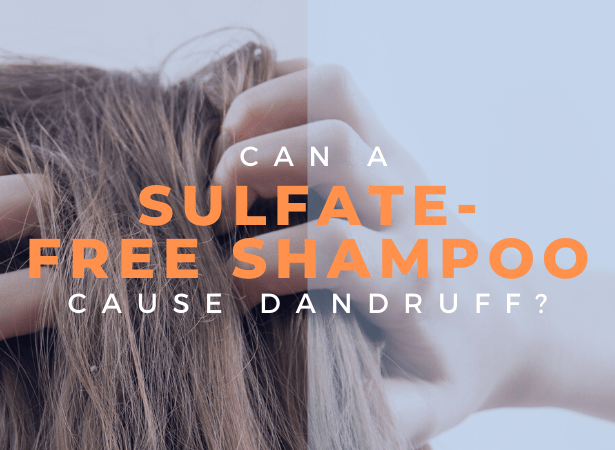I used to get dandruff often as a kid. Now, I don’t so often except for the rare occasions that I really need clean hair without flakes of shedding skin growing all over it. I have no idea why they occur. I guess I can attribute it to the days that I have poor hygiene from being stressed too much.
What Causes Dandruff?
There are lots of causes of dandruff, including eczema, sensitivity to hair care products, yeast, fungus, and many others. You probably noticed that most of these causes are due to micro-organisms, and that is why you might have also noticed that on the days that you don’t dry your hair, you will have a generous growth of dandruff all over your hair because micro-organisms like fungus and bacteria love damp conditions.
However, you can’t expect a recurrent case of microorganism induced dandruff to go away perfectly by just having a dry hair. Since they’re microorganisms, sometimes treatments like an anti-fungal might be needed. On top of that, coal tar can be used to slow skin regrowth speed to slow down the growth of dandruff. As mentioned earlier, another cause of dandruff might be due to a cause that is not micro-organism induced but as a result of a sensitivity to certain hair care products.
Different hair care products, whilst having similar base chemical components, also contain a vastly different range of other lesser is known chemical products. It’s only matter of time and chance that you find a bottle of shampoo or conditioner that your scalp seems too intense disagree on.
Sulfate-Free Shampoos
Because of this, some of the prominent companies in hair care have taken on to selling products that are sulfate-free. Sulfates are included into nearly all shampoos.
The two most common sulfates that get added to shampoos are called Sodium Laureth Sulfate (SLES) and Sodium Lauryl Sulfate (SLS). These sulfates help the shampoo to become bubbly, as well helping to remove the dirt and grime that are in your hair. In fact, these sulfates are pretty much present in all cleaning products, because they are effective in removing dirt and grime.
Such household products that contain sulfate products include toothpaste, soaps, etc. So it is clear that these sulfate products must be safe, right? Well, technically yes. The US Food and Drug Administration (FDA) considers SLS and SLES to be safe to the human body. In the sense that these products won’t put you in an agonizing misery of fatal full body allergic skin reaction, these are safe, however, it doesn’t necessarily mean that these products aren’t going to irritate your scalp to the point that it causes dandruff. Back to sulfate free shampoos.
If we assume that yes, your dandruff is indeed caused by sensitivity to such chemicals as SLS, SLES, or whatever else chemicals with abbreviated or multi-syllabic names that is on the back of shampoo bottles with unreadable font size, perhaps it might be a wise decision to switch to sulfate-free shampoos or shampoos with natural ingredients with them.
Got sexy blonde hair? Know which sulfate free shampoo is best for your blonde hair.
Related Questions
What if I'm Still Getting Dandruff with Sulfate-free Shampoo
It could be that you’re just using sulfate-free shampoos wrong. Because they are different from normal shampoos with sulfates in them that help removes oil and dirt, you must alter how you use sulfate-free shampoos. Some people advocate that you must cleanse twice using sulfate-free shampoos, washing your hair twice with two applications of the sulfate-free shampoo. This is probably because these shampoos use fewer chemicals, you must wash more thoroughly.
You’ll have noticed with sulfate free shampoos that they are sudsy and don’t lather as much because it’s missing the SLES component, which is a chemical used exclusively for helping the shampoo to lather up. Either way, you’re going to need to wash your hair more thoroughly. Or as I’ve just mentioned, wash your hair twice, one application of soap after the other.
If your hair isn’t clean and has poor scalp hygiene, the scalp is just going to become a breeding ground for fungus to grow. So wash thoroughly! It’s going to help your hair become squeaky clean even without shampoos with sulfates.
Dandruff That's Not Going Away
Fear not because as I’ve said earlier, your dandruff may not be caused by sensitivity to hair care products. It is probably more likely that there is a fungal growth in your hair that is causing dandruff. These fungal growths may be caused by lack of hygiene, but it is also possible that it is just genetics. I know that sucks, but some people might be just genetically more pre-conditioned to have scalp and hair that is more likely to develop fungal infections and cause dandruff.
Depending on the case, however, dandruff caused by fungal growth can be actually simple to treat. All you need is some anti-fungal soap. Some of these anti-fungal soaps contain tree oil in them. You might hear people or companies claiming that tea tree oil is effective in treating acne, athlete’s foot, according to National Center for Complementary and Integrative Health (NCCIH), there is little evidence to support such claims.
Therefore it might be not completely essential that your choice of antifungal soap have tea tree oil in them, but it doesn’t change the fact that they smell really nice and make having showers pleasant. Thinking about that now, I should go get some tea tree shampoos.
In Conclusion
So do sulfate-free shampoos cause dandruff? Probably not. I mean you’ve probably switched to sulfate-free shampoos because you were getting dandruff with normal shampoos and thought that maybe switching to a sulfate-free shampoo will help you stop getting dandruff. But yeah, if sulfate-free shampoos are still causing you dandruff, as I’ve outlined, it could be because of multitudes of reasons.
You could try washing more, or use anti-fungal soap, or go back to using normal shampoos, and if none of the crazy combinations between antifungal soap, normal soap or whatever washing method doesn’t work, you can go to a doctor because sometimes medical treatment is necessary.




